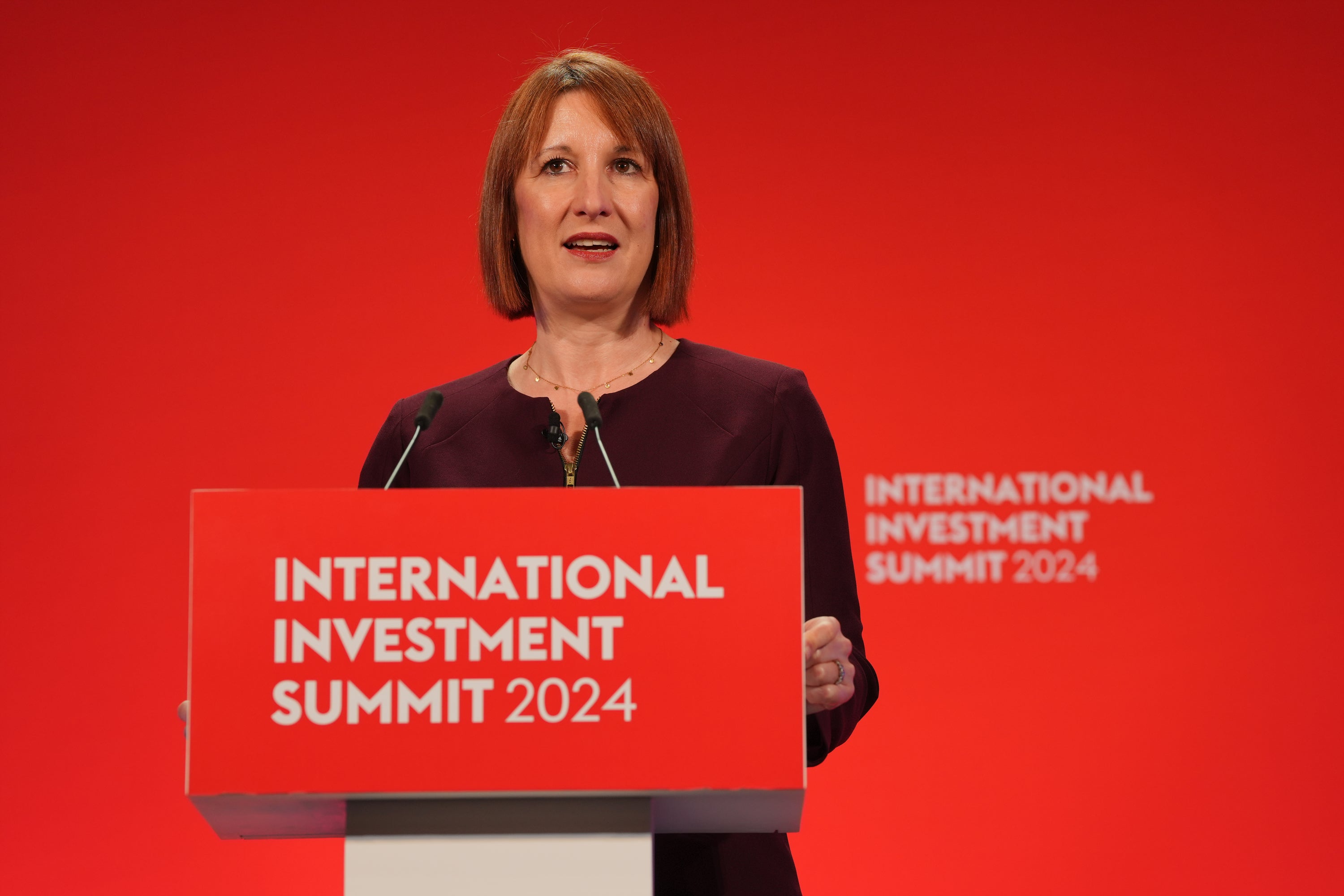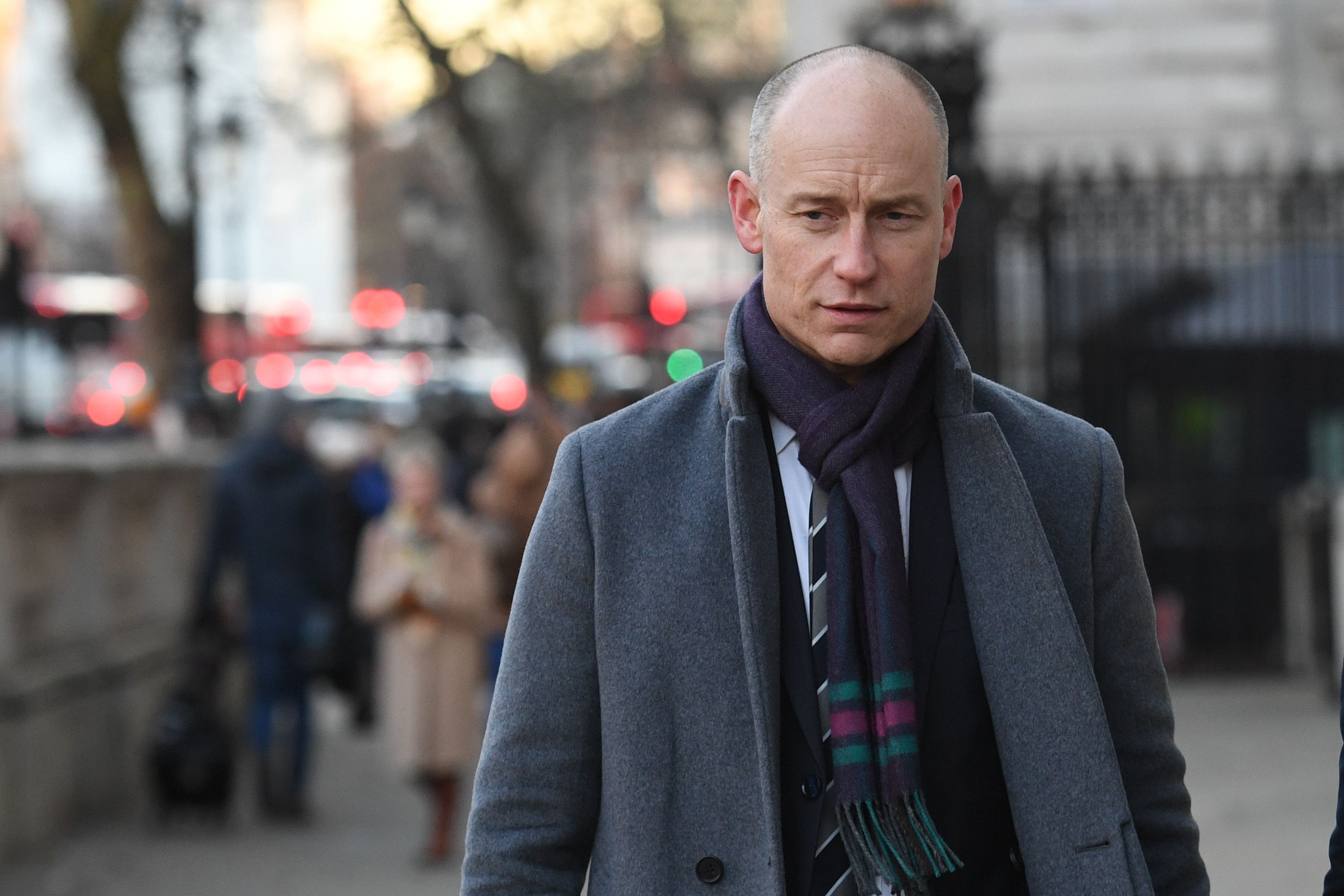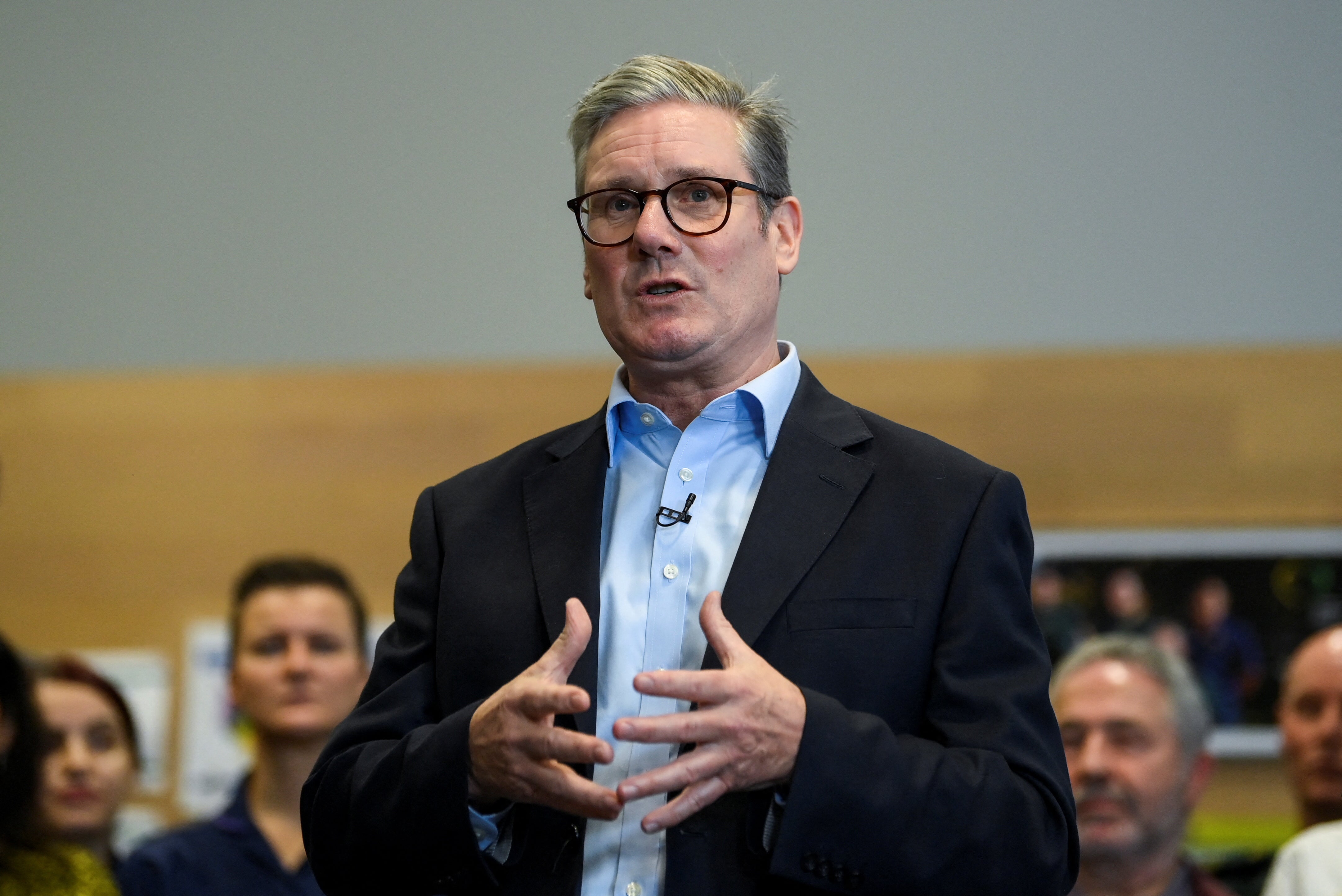Tax on high earners ruled out as Rachel Reeves looks to plug £40bn Budget black hole
No 10 forced into astonishing admission that high earners can also be protected by its pledge not to raise national insurance for working people – after minister refused six times to confirm if that included employees on six-figure salaries
Your support helps us to tell the story
This election is still a dead heat, according to most polls. In a fight with such wafer-thin margins, we need reporters on the ground talking to the people Trump and Harris are courting. Your support allows us to keep sending journalists to the story.
The Independent is trusted by 27 million Americans from across the entire political spectrum every month. Unlike many other quality news outlets, we choose not to lock you out of our reporting and analysis with paywalls. But quality journalism must still be paid for.
Help us keep bring these critical stories to light. Your support makes all the difference.
Sir Keir Starmer’s government was hit by another day of Budget chaos after Labour was bounced into conceding that individuals earning above £100,000 are still “working people”.
On a day when the prime minister had hoped to get a grip on the political agenda with the launch of a major consultation over the future of the NHS, Sir Keir faced another series of rows and speculation over whether Rachel Reeves was planning further taxes on the rich.
In its manifesto, the party promised not to raise “taxes on working people” – specifiying national insurance, income tax and VAT.
But ahead of next week’s Budget, minister of state for care Stephen Kinnock refused to clarify whether those earning £100,000 or more will be protected by the pledge – or if they are instead set to face tax hikes as the chancellor attempts to fill a £40bn black hole in Labour’s spending plans.

The row is just the latest chapter after weeks of confusion that has dogged the Labour government in the lengthy run-up to its first Budget. Senior figures from Labour’s past have already questioned why Ms Reeves delayed so long to unveil her statement.
But the government line of not commenting on any speculation regarding questions about the Budget has set off concerns over wealth taxes, including capital gains and inheritance, and queries over whether Labour is looking at ways of getting around its pledge not to increase income tax, VAT or national insurance “for working people”.
A number of hours after Mr Kinnock’s comments, the government eventually closed the door to a tax on workers with six-figure salaries amid confusion over what Labour’s definition of “working people” means.
But sources close to Ms Reeves issued a clarification that included those on six-figure salaries as “working people”.
The threat of a raid on high earners would further fuel concerns that those with wealth will leave the UK.
Any extra tax on people earning £100,000 more would drag in high-end professionals, as well as many GPs and secondary school headteachers. One leading businessman in London warned that “it will not only be a departure of wealth but a brain drain with talent leaving the country as well”.

The loss of high earners could hit Labour’s plans for growth, with the top 1 per cent of earners paying 30 per cent of all taxes, according to the London School of Economics.
Britain is already second in the league table for millionaires quitting the country, after India. One estimate suggests that as many as 500,000 millionaires could relocate by 2028.
The speculation about Ms Reeves’s plans came ahead of a launch of a consultation on NHS reform this morning when Mr Kinnock refused to say six times whether those on six-figure salaries would be protected from tax rises.
Asked by Sky News if those on salaries above £100,000 were classed as “working people”, he replied: “The chancellor is going to set all of this out on October 30. Look, our manifesto made it absolutely clear that we will not be raising national insurance, income tax or VAT on working people, and that is the pledge that will be delivered.”
Asked to define “working people”, he said: “The chancellor will make that absolutely clear on October 30.”

Pressed on Mr Kinnock’s answers, a Downing Street spokesperson said: “The chancellor talked about people who go out and work and earn money through hard work, and ultimately the government remains committed to the manifesto pledge not to raise VAT, national insurance contributions or income tax as part of its commitment not to increase taxes on working people.”
The spokesperson added that ministers are “referring to people who go out and work and earn their money through hard work”.
Over the weekend, health secretary Wes Streeting said there would be no help for high earners in the Budget, which would be targeted at assisting low and middle-income earners.
The government has previously indicated that it is looking at a series of wealth taxes including raising capital gains rates on investments, and increasing inheritance tax and extending it to farmland.
Other plans set to be confirmed in the Budget are a tax raid on private schools, with 20 per cent VAT applied to fees, and abolition on non-dom status.
A Conservative Party spokesperson said: “This Labour government is incapable of being straight with the British public.
“Time and time again they promised not to raise taxes on working people, and now just nine days from their first Budget they still can’t even say what that means.
“They must urgently clarify who will bear the brunt of their tax plans or once again face accusations that they are gearing up to break their promises to the British people.”
Subscribe to Independent Premium to bookmark this article
Want to bookmark your favourite articles and stories to read or reference later? Start your Independent Premium subscription today.

Join our commenting forum
Join thought-provoking conversations, follow other Independent readers and see their replies
Comments